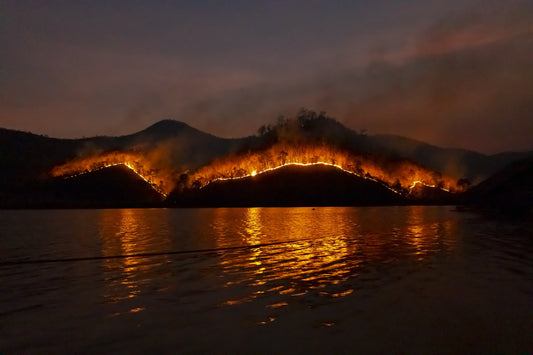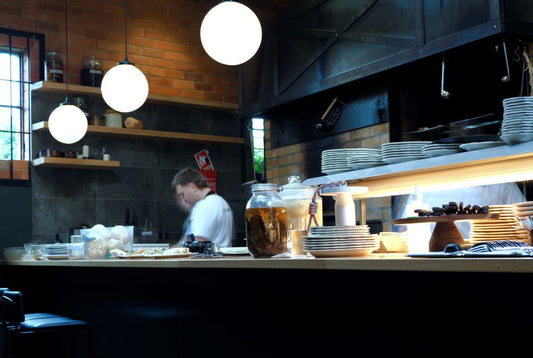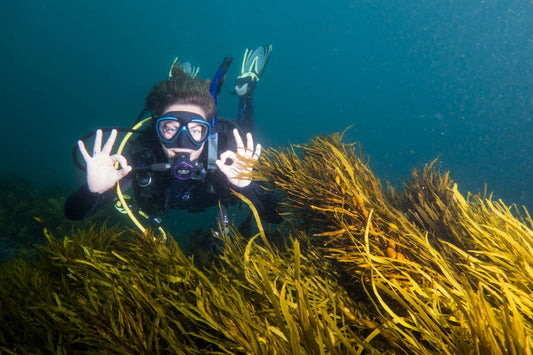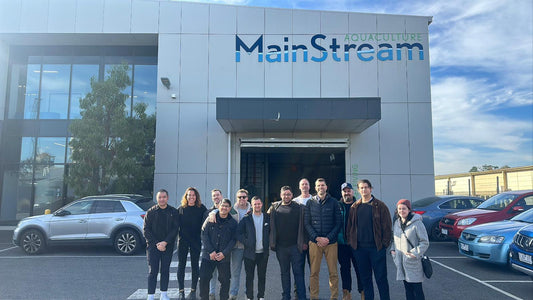ALL STORIES
-
 News
NewsHow Bushfire Affects the Waterways
As the bushfire season approaches, spare a thought for how these events can also have a devastating impact on our coastal fisheries... In December of 2005, a major bushfire swept through Wilsons Promontory. Over the next few weeks, over 25,000 hectares would be lost to the flames. Imagine the MCG pitch multiplied over 40,000 times. Just four years later, Victoria - and indeed, the entire country - was rocked by the events of Black Saturday. 173 people lost their lives and over 2000 homes were destroyed. There is a tangible cost to these tragic fire events: lives lost, properties destroyed. But there are also costs which are not necessarily recognised in the aftermath. Luke Anedda, president of the Corner Inlet Fisheries Habitat Association (CIFHA), has a fairly unique recollection of...
NewsHow Bushfire Affects the Waterways
As the bushfire season approaches, spare a thought for how these events can also have a devastating impact on our coastal fisheries...
In December of 2005, a major bushfire swept through Wilsons Promontory. Over the next few weeks, over 25,000 hectares would be lost to the flames. Imagine the MCG pitch multiplied over 40,000 times. Just four years later, Victoria - and indeed, the entire country - was rocked by the events of Black Saturday. 173 people lost their lives and over 2000 homes were destroyed.
There is a tangible cost to these tragic fire events: lives lost, properties destroyed. But there are also costs which are not necessarily recognised...
Read More
-
 News
News“Making our Restaurant Sustainable Wasn’t Diffi...
Here is a maxim that deserves more attention: most people are trying to do the right thing most of the time. When the ‘right thing’ is just too costly or difficult, only then will people revert to the path of least resistance. This same principle applies to sustainability. The overwhelming majority of people want to make ethical, responsible choices. But when the cost becomes too great? We wince, take the easiest option, and do our best not to think about it too hard. Sustainability can be hard work. Kyle Nicol, head chef at Lilac Wine in Melbourne would disagree. “It hasn’t been that hard,” he explains. Lilac Wine always has at least two to three seafood dishes on its menu at any one time, and is the first mention on...
News“Making our Restaurant Sustainable Wasn’t Diffi...
Here is a maxim that deserves more attention: most people are trying to do the right thing most of the time. When the ‘right thing’ is just too costly or difficult, only then will people revert to the path of least resistance. This same principle applies to sustainability. The overwhelming majority of people want to make ethical, responsible choices. But when the cost becomes too great? We wince, take the easiest option, and do our best not to think about it too hard. Sustainability can be hard work. Kyle Nicol, head chef at Lilac Wine in Melbourne would disagree. “It hasn’t been that hard,” he explains. Lilac Wine always has at least two to three seafood dishes on its menu at any one time, and is the first mention on...
Read More -
 News
NewsThe Butterfly Effect - How the loss of crayweed...
It is often said that a butterfly flapping its wings on one side of the planet can have cataclysmic impacts on places thousands of miles away. Long before The Butterfly Effect was a 2004 sci-fi film, it was the premise of a meteorologist Edward Lorenz who showed that even the slightest alteration to an environment could echo through time to eventually cause chaos. This same theory can be applied to ecosystems in our waterways. Take for example crayweed. It is a fairly common kind of kelp, or underwater ‘tree’ that forms forests in the shallows off south eastern Australia. For the most part, it is about a metre tall, although in Tassie, it can reach heights of 3 metres. The average person might look at it and shrug. ...
NewsThe Butterfly Effect - How the loss of crayweed...
It is often said that a butterfly flapping its wings on one side of the planet can have cataclysmic impacts on places thousands of miles away. Long before The Butterfly Effect was a 2004 sci-fi film, it was the premise of a meteorologist Edward Lorenz who showed that even the slightest alteration to an environment could echo through time to eventually cause chaos. This same theory can be applied to ecosystems in our waterways. Take for example crayweed. It is a fairly common kind of kelp, or underwater ‘tree’ that forms forests in the shallows off south eastern Australia. For the most part, it is about a metre tall, although in Tassie, it can reach heights of 3 metres. The average person might look at it and shrug. ...
Read More -
 News
NewsSeafood Safari for Melbourne's top chefs!
In the lead up to World Ocean Day on June 8th, chefs from Melbourne’s top restaurants are diving deep into seafood sustainability. Eco start-up Seafood Positive and Two Hands have teamed up to host chefs from some of Melbourne’s favourite restaurants including Stokehouse, Nomad, Lilac Wine Bar, Supernormal and The Local Tap House on a seafood safari, showcasing Victoria’s sustainable produce. Seafood Positive Founder Dr Chris Gillies said “Australians eat over 356,000 tonnes of seafood each year, with demand for seafood expected to double by 2050. Educating chefs on which fish species are sustainable and where to source them will help ensure we don’t harm fish stocks and marine life as more people eat seafood.” The tours visit local seafood producers including Mainstream Aquaculture Barramundi farm at...
NewsSeafood Safari for Melbourne's top chefs!
In the lead up to World Ocean Day on June 8th, chefs from Melbourne’s top restaurants are diving deep into seafood sustainability. Eco start-up Seafood Positive and Two Hands have teamed up to host chefs from some of Melbourne’s favourite restaurants including Stokehouse, Nomad, Lilac Wine Bar, Supernormal and The Local Tap House on a seafood safari, showcasing Victoria’s sustainable produce. Seafood Positive Founder Dr Chris Gillies said “Australians eat over 356,000 tonnes of seafood each year, with demand for seafood expected to double by 2050. Educating chefs on which fish species are sustainable and where to source them will help ensure we don’t harm fish stocks and marine life as more people eat seafood.” The tours visit local seafood producers including Mainstream Aquaculture Barramundi farm at...
Read More




